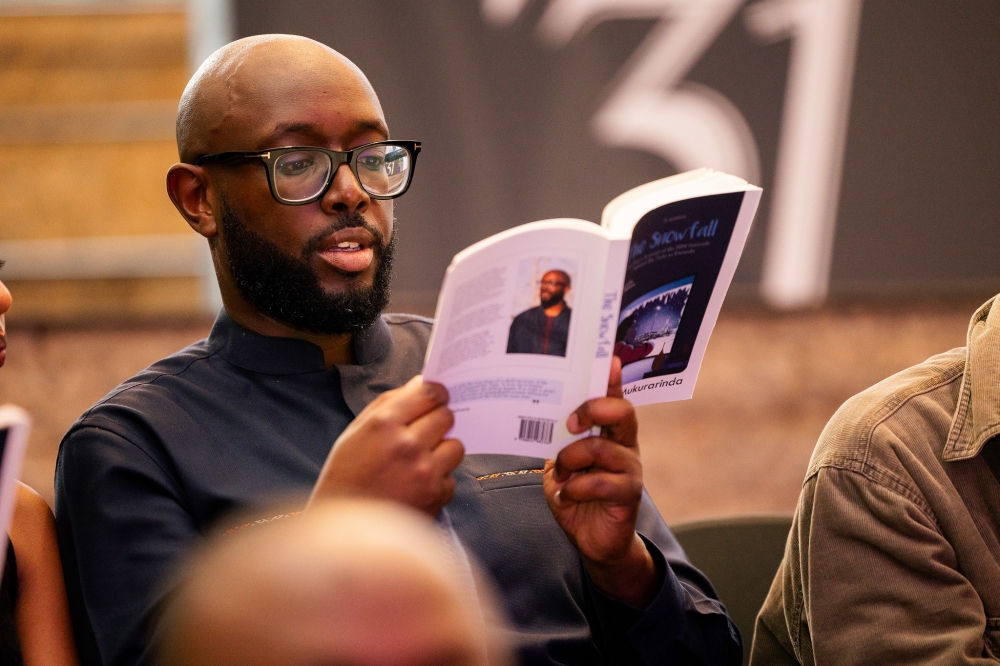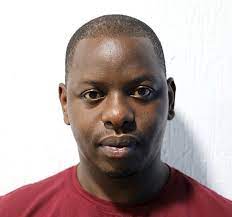

When he was 11, Gustave Mukurarinda Mukunde survived the 1994 Genocide against the Tutsi in Rwanda, one of the most tragic and horrific events in human history.
ALSO READ: Fifteen books that help you get the true story of the 1994 Genocide against the Tutsi
Through his book, The Snowfall, Mukurarinda recounts the traumatic experiences he endured alongside his family in Nyanza District. The book telling his ordeal is written in a creative style. He chose the title &039;The Snowfall' because snow is something that deeply unsettles all Canadians — drawing a parallel to how the 1994 Genocide had a profound impact.
During a Café Littéraire held on April 23 at Kigali Genocide Memorial, he explained that he wrote the book while living in Canada, after experiencing deep loneliness and nostalgia.
"I was still suffering from the effects of the genocide. When I was in Rwanda, despite these effects, I could at least receive moral support from my siblings, members of the association for student survivors of the genocide, and friends. In Canada, I felt lonely. That’s how I began writing the book not only to share my experience of the genocide, but also as a way to heal myself,” he said.
In The Snowfall, Mukurarinda goes beyond a frontline memoir. He delves into the socio-political structures that enabled the 1994 Genocide, demonstrating that the murder of a million Tutsi, over 300,000 of them children, was not a spontaneous tragedy, but a meticulously planned crime rooted in decades of ideology and systemic discrimination.
The narrative of The Snowfall begins on April 3, 1994.
ALSO READ: Govt to distribute new book on Genocide history for children, youth
At 11, Mukurarinda witnesses the world around him collapsing. Through a blend of flashbacks and vivid memories, he reconstructs the realities of his family’s past and his country’s troubled history piecing together what he saw, heard, and understood as a child.
Beyond the genocide itself, The Snowfall vividly depicts life for a Tutsi family before the violence, and explores both the struggles and resilience of survivors in its aftermath, as well as Rwanda’s journey towards liberation.
Written with teenagers, academics, and fellow survivors in mind, The Snowfall immortalises history through creative non-fiction.
Featuring a foreword by acclaimed British investigative journalist and author of seven non-fiction books Linda Melvern and a meticulously researched narrative, it stands as a powerful testimony ensuring the truth is neither forgotten nor rewritten.
ALSO READ: Linda Melvern’s new book exposes patterns of Genocide denial
"I realised that many people are trivialising the 1994 Genocide against the Tutsi. I had to respond with this book,” he said.
Published in March, the 256-page book blends personal experience with historical context.
His narrative honours the victims of the genocide, celebrates the heroism of RPF/A-Inkotanyi soldiers, and highlights the resilience of genocide survivors, emphasising the importance of commemoration as a foundation for peace, unity, and compassion.
"After months spent seeking refuge during the genocide, I met RPF-Inkotanyi. My needs were met. I received support to continue my education. I feel a responsibility to educate young people about Rwanda’s history so they are equipped to challenge genocide denial with facts,” he said.
His sister, Juliet Mukurarinda, added: "I have children, and they will use this book to learn more about the history of the 1994 Genocide against the Tutsi, which affected us and all Rwandans.”
Jean-Damascène Bizimana, the Minister of National Unity and Civic Engagement, reiterated that the book will help counter genocide denial, particularly among individuals living in Canada and elsewhere, such as a priest named Fortunatus Rudakemwa who has been accused of trivialising the genocide against the Tutsi.
"It is commendable to see young people documenting the history of the Genocide. As the author of The Snowfall lived with his parents and listened to their stories, he was able to narrate not only how the genocide was carried out, but also how it was planned and how his family endured atrocities even before 1994,” he noted.


